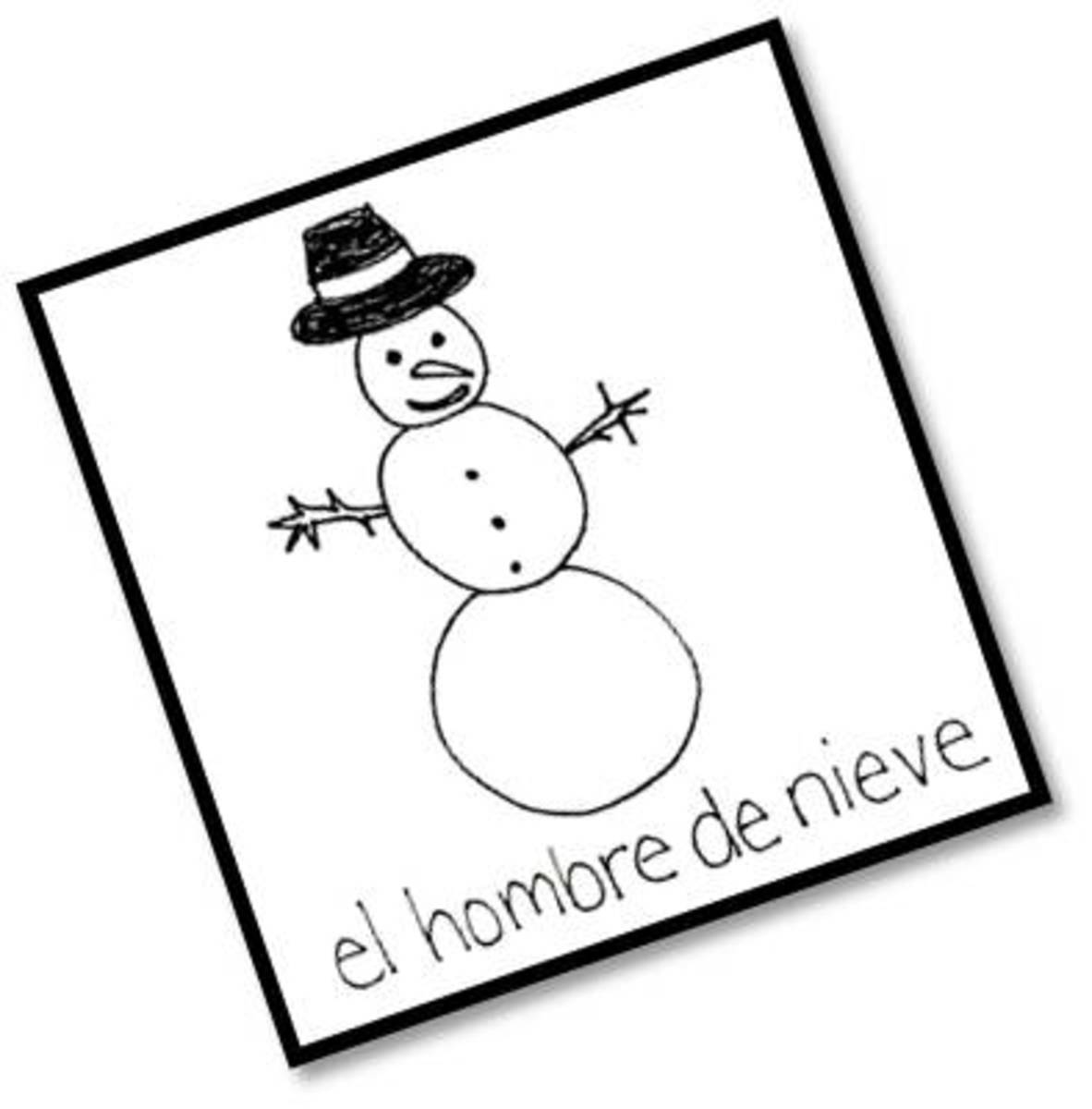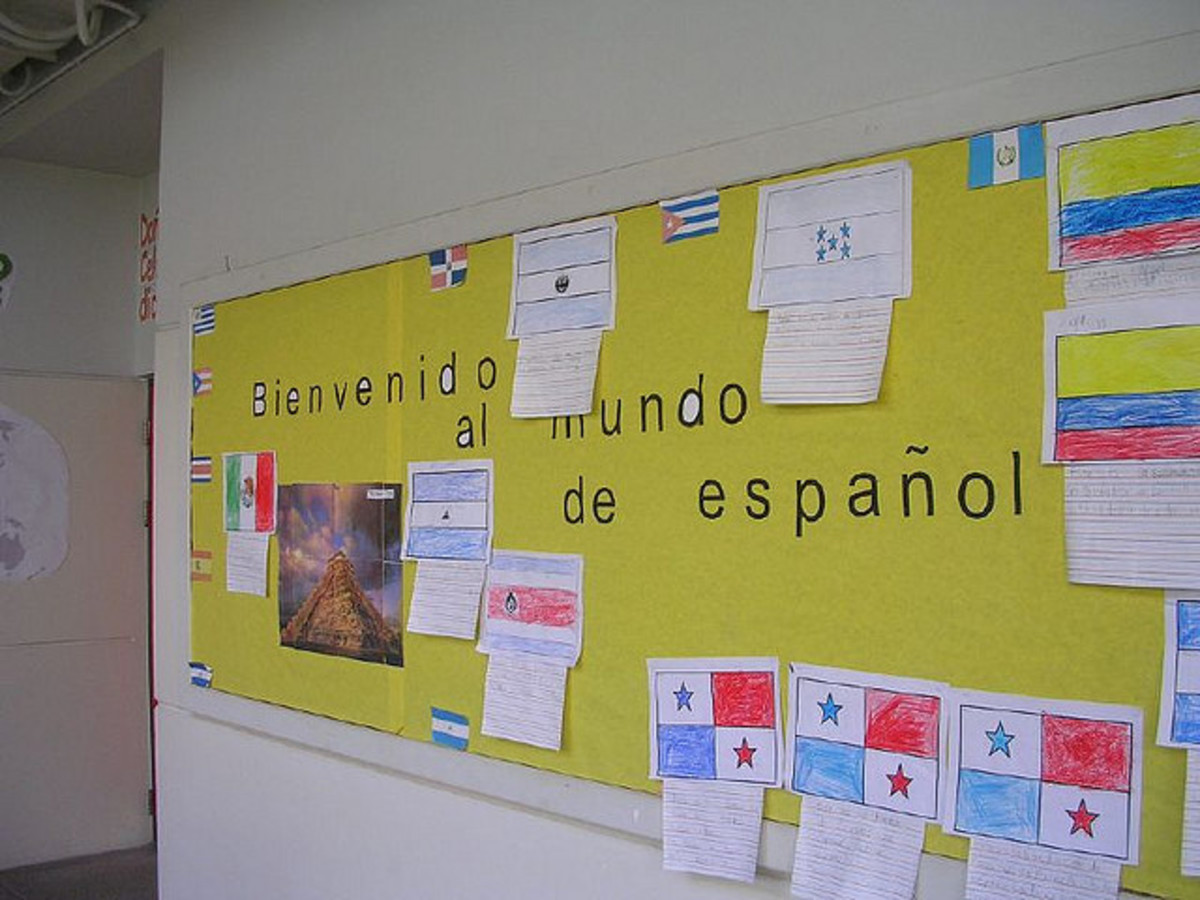Spanish Lesson Thirty-Four: Tense Review

Hey Readers! It's Sunday again! I actually I think this week went by a lot slower than the last few weeks. I feel like it's been forever since our last Spanish lesson. But that's okay, not every week should speed by. We most likely won't remember it or wished for more time in the future. It's all relative really. Time probably moves at one speed and dependent upon our perception. Maybe... Anyway welcome back to your week Spanish lessons. I hope these lessons have been helping you learn Spanish "A Little At A Time". I know it sure feels like we're learning slowly, but I think it's totally for the best this way. A lot of time language is taught so fast that a lot of people have trouble retaining any of the information. That is the reason that I CONSTANTLY review over previous lessons and return to commonly known rules and special information. I know a lot of the exclusions and such because I retained SO MUCH of my Spanish over the years. Now that I'm adding more to it, it feels really good to learn new things as well as teach them to you all. Today's lesson is a review of all the tenses we've learned today. Remember there are 14 tenses, 7 Singular and 7 Compound tenses. I'm only going to review the tenses. This does not include the Imperative, Present Progressive, or Participles. The tenses to be reviewed today are Present Indicative, Imperfect, and The Preterit. If you're joining us for the first time, check out some of the previous lessons--->here.
Today's Goals: To Review previous tenses learned in Spanish. To be able to retain the conjugation and uses and of each tense.

Today's Vocabulary
Hey everyone! Today's a review day so we won't have a Warm-Up today. I do want everyone to take a look at the tip below and use it to help you retain what little or great deal of information you have maintained. Thanks a lot for reading and I hope everyone is getting something out of these lessons. Take a look at this week's hodgepodge. I think you'll enjoy the words I have for today. Also consider buying a English-Spanish Dictionary to help you define words that have not been featured in the vocabulary. Check it out!
Today's Tips: Take a gander at your vocabulary lists. Any words you've seen before? Familiarize yourself with those and try to learn some of the new ones!
Verbs
To Discuss: Discutir
To Excuse/To Dispense/To Distribute: Dispensar
To Distinguish: Distinguir
To Ache/To Cause Grief/ To Pain/To Cause Regret: Doler
To Sleep: Dormir
To Doubt: Dudar
To Cast/To Fling/To Hurl/To Pitch/To Throw: Echar
Reflexive Verbs
To Abstain: Abstenerse
To Be Bored/To Grow Tired/To Grow Weary: Aburrirse
To Approach/To Draw Near: Acercarse
To Remember/To Agree: Acordarse
To Go To Bed/To Lie Down: Acostarse
To Go Forward/To Move Ahead/To Take The Lead: Adelantarse
To Shave Oneself: Afeitarse
Nouns
The Internet: El Internet
Website: La Página Web
Download: La Descarga
Email: El Correo Electrónico
File: El Fichero
Blog: La Bitácora
Adjectives
Bright: Brillante
Dim: Tenue
Light Colored: Claro(a)
Dark Colored: Oscuro(a)
Transparent: Transparente
Special Note: I ran out of Reflexive Verbs in my dictionary, so we are starting again. Some of the words I remember without defining them. This repetition should help you as well. If you've never seen these verbs, congrats! You can start from the beginning of the alphabet.
The Present Indicative
Using the Present Indicative is pretty simple in and of itself. It's simply the present tense in the Spanish language. This tense is used to discuss things that are happening right now and in the near future. This tense is one of the seven singular tenses. To use this tense, simply conjugate any verb by using the conjugation chart below. Remember that there are exceptions to the rule with irregular verbs such as Ir, Estar, and Ser. Keep an eye on all of those. Use the Present Indicative:
- When you need to describe things happening right now.
- When you need to describe an event or action that happens in the near future.
- When you need to discuss actions and generally truths that happen habitually in the present.
- When you have to discuss an event (such as a narrative).
- When you need to ask questions or get directions.
- When you need to state a generally theory, hypothesis or current conditions.
Conjugating A Verb In Present Indicative
Subject
| -AR Ending
| -ER Ending
| _-IR Ending
|
|---|---|---|---|
Yo
| O
| O
| O
|
Tú
| As
| Es
| Es
|
Él/Ella/Usted
| A
| E
| E
|
Nosotros
| Amos
| Emos
| Imos
|
Ellos/Ellas/Ustedes
| An
| En
| En
|
The Preterite
The Preterite Tense is one of the seven singular tenses that involves actions in the past. This tense is one of two tenses involving actions that occurred in the past. The best way to know when to use the preterite over the Imperfect is to read all of the rules involving its usage. Also make sure you read the conjugation chart below. Remember that exclusions apply to the rules of the Preterite. Here are conditions in which you must use the Preterite to discuss past actions. Use the Preterite to discuss:
- Actions that occurred and finished in the past.
- Actions that are viewed as singular.
- Actions that have a specific start and end.
- Actions that occur within a chain.
Conjugating A Verb in The Preterite
Subject
| -AR Ending
| -ER/IR Ending
|
|---|---|---|
Yo
| É
| í
|
Tú
| Aste
| Iste
|
Él/Ella/Usted
| Ó
| Ío
|
Nosotros
| Amos
| Imos
|
Ellos/Ellas/Ustedes
| Aron
| Ieron
|
The Imperfect
The Imperfect tense is the second of the past tenses in Spanish. It is used quite differently than the imperfect and also has its own set of rules and exclusions. The Imperfect only has Three irregulars, so conjugation is a great deal simpler with this tense. Read the bullets to understand when to use the Imperfect versus the Preterite tense. Also understand how to conjugate verbs in the tense with the chart below. Use the Preterite to discuss:
- Actions that have no definite beginning or end in the past.
- Actions that occurred habitually in the past.
- Actions that are deemed as things one "used to" do.
- Actions that require "setting the stage" for another action.
- Actions that are deemed "unfinished".
- Age and Time in the past.
Conjugating A Verb in The Imperfect
Subject
| -AR Ending
| -ER/IR Ending
|
|---|---|---|
Yo
| Aba
| Íba
|
Tú
| Abas
| Íbas
|
Él/Ella/Usted
| Aba
| Íba
|
Nosotros
| Ábamos
| Íamos
|
Ellos/Ellas/Ustedes
| Aban
| Ían
|

Homework
There will be no official homework for this lesson. Just go over your notes, familiarize yourself with these tenses and review! That's all you should be doing at this point. Next Lesson will discuss the use of The Subjunctive tense in the Spanish language. It's one of those strange tenses that I never quite understood its use and meaning. So I will study up and get back to you all next Sunday for the lesson. I promise I will explain it as best as I can. So without further ado, have a great night! I will see you all next Sunday. :)
Also Check Out...
- Present Indicative Tense - Spanish for Beginners
Learn more about the present tense in this lesson for people beginning to learn Spanish. - Spanish Preterite Verbs
Practice Spanish verb conjugations. Regular preterite verbs. - The Imperfect Tense in Spanish








